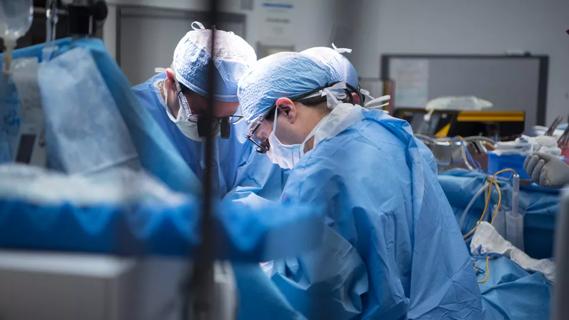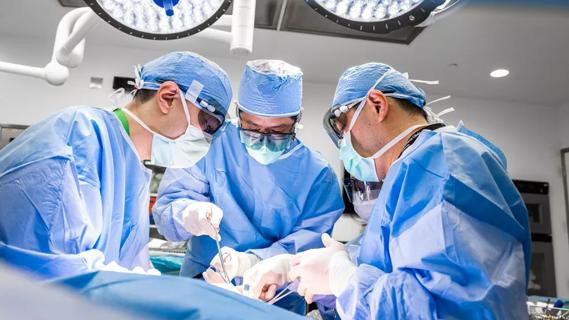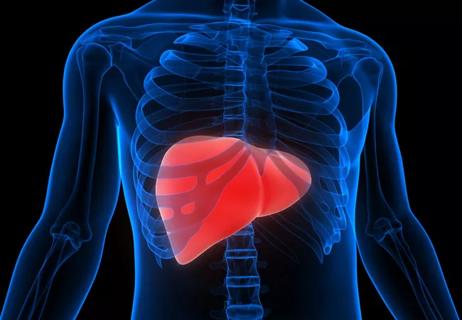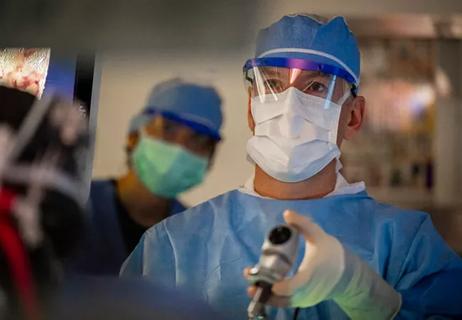Bench research seeks answers to improve tomorrow’s care

Research is a major focus within Cleveland Clinic’s Department of Colorectal Surgery, and at any given time, numerous studies are ongoing in various subspecialty areas. Below is just a sampling:
Advertisement
Cleveland Clinic is a non-profit academic medical center. Advertising on our site helps support our mission. We do not endorse non-Cleveland Clinic products or services. Policy
The relationship between chronic inflammation and cancer development is well-known, but the cellular and molecular mechanisms underlying the relationship are not well-understood. Researchers suspect that increased levels of the inflammation-causing protein interleukin-8 (IL-8) may be partly to blame for increased rates of colon cancer in patients with ulcerative colitis (UC). A long-term goal is to clarify the link between inflammation and cancer in general, and to prevent colitis-associated cancer in particular.
“We are looking for an antagonist to IL-8 or the IL-8 receptor,” says Emina Huang, MD, who joined the Department of Colorectal Surgery in 2013, bringing with her two five-year NIH R01 grants with remaining funding totaling $1.5 million. “If IL-8 is the culprit in cancer formation, we can focus on finding ways to regulate its function to prevent inflammation-associated cancer and, specifically, colorectal cancer. Once we understand the contribution and mechanism by which IL-8 promotes tumor initiation, we will be able to develop ways to interfere with the progression from benign colitis to malignant cancer.”
Colorectal surgeon David Liska, MD, whose current research is also focused on the role of the tumor microenvironment, hopes their work will one day help identify novel biomarkers and molecular targets that will allow for personalized therapies with improved outcomes.
“Current therapies for colorectal cancer target the cancerous epithelial cells, which have proved to be very adept at escaping cell death through various mechanisms,” says Dr. Liska, who collaborates with both Drs. Huang and colorectal surgeon Matthew Kalady, MD. “The fibroblasts in the tumor stroma are less likely to transform when exposed to stress and therefore present attractive targets in the treatment of cancer.”
Advertisement
Research conducted in our department is bolstered by having the nation’s largest and most comprehensive colorectal outcomes database at our disposal. The robust database, explains Luca Stocchi, MD, Director of Research in the Department of Colorectal Surgery, contains hundreds of data points on 30,000 operations going back as far as 1978. “This resource, which collects prospective data for a variety of diseases — from UC to Crohn disease, colorectal cancer and diverticulitis, with an emphasis on laparoscopic surgery — truly helps stimulate clinical research,” says Dr. Stocchi. The repository attracts individuals who come to Cleveland Clinic from all over the world to do clinical research to answer questions, such as whether one operation is better than another, or whether any risk management strategies might improve the outcomes of a particular procedure. The data are also used for internal research projects, such as a prospective trial comparing patient-led diet advancement after surgery to a physician-prescribed diet, being undertaken by Emre Gorgun, MD, Feza H. Remzi, MD, Chairman, Department of Colorectal Surgery, and Maher A. Abbas, MD, Chairman, DDI, Cleveland Clinic Abu Dhabi.
“These types of studies help us answer pressing questions about a number of diseases that may one day improve the care we, as colorectal surgeons, can provide to our patients,” Dr. Stocchi says.
Advertisement
Advertisement

Strong patient communication can help clinicians choose the best treatment option

ctDNA should be incorporated into care to help stratify risk pre-operatively and for post-operative surveillance

The importance of raising awareness and taking steps to mitigate these occurrences

New research indicates feasibility and helps identify which patients could benefit

Treating a patient after a complicated hernia repair led to surgical complications and chronic pain

Standardized and collaborative care improves liver transplantations

Fewer incisions and more control for surgeons

Caregiver collaboration and patient education remain critical